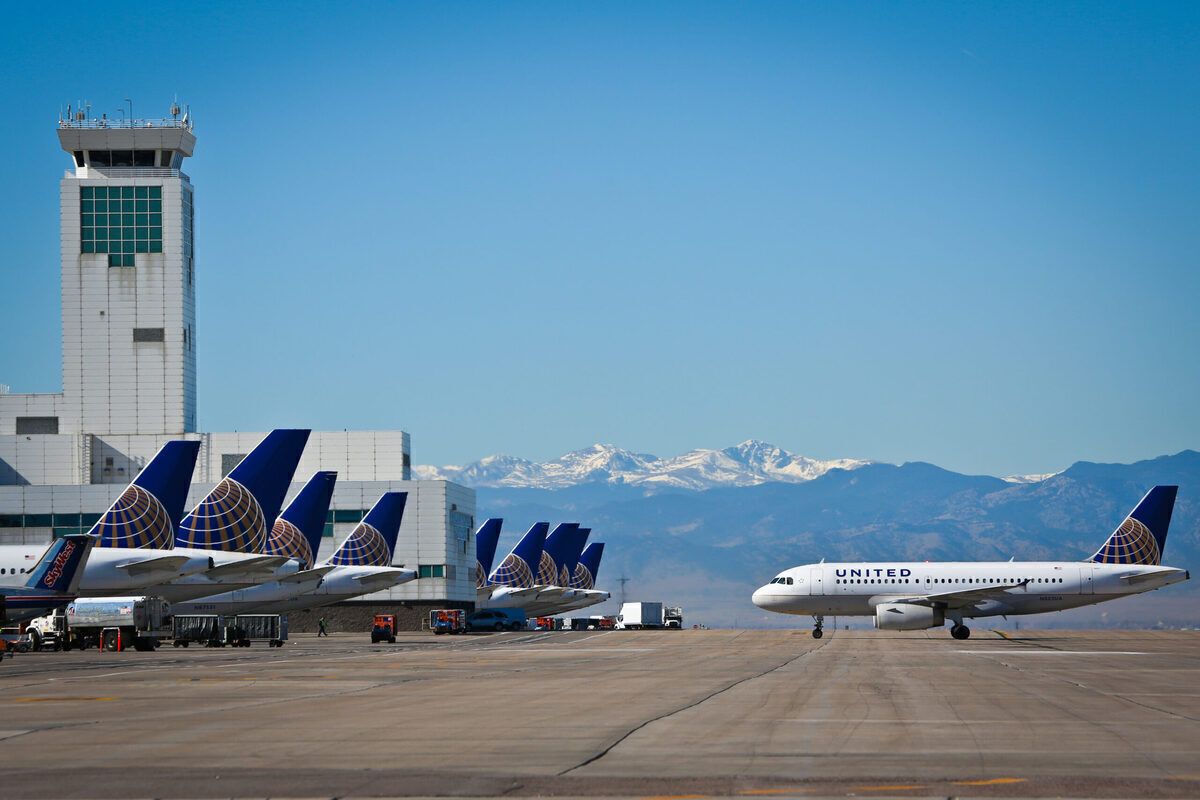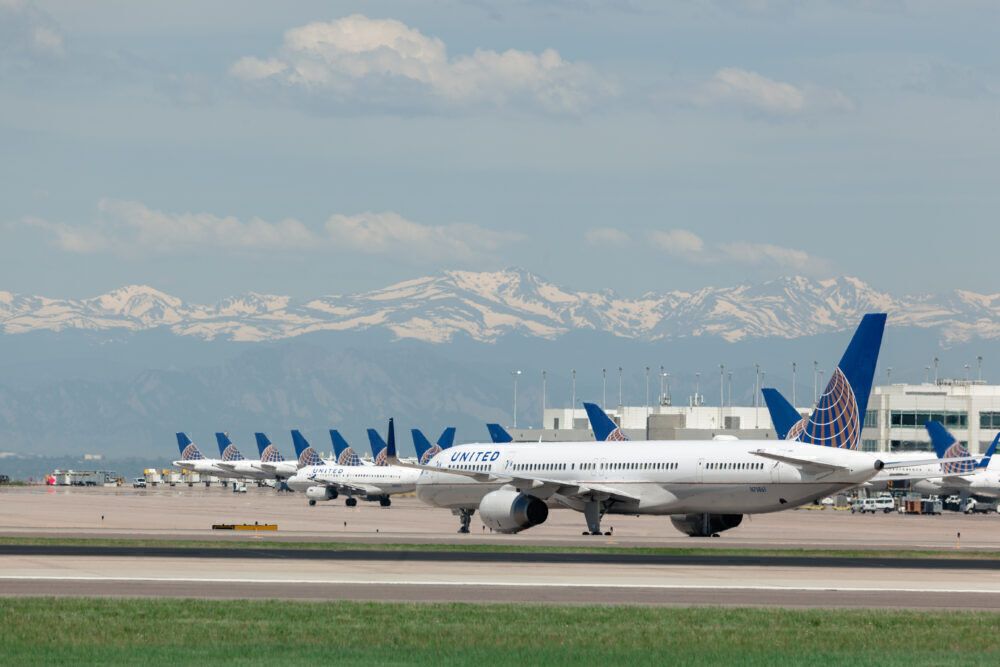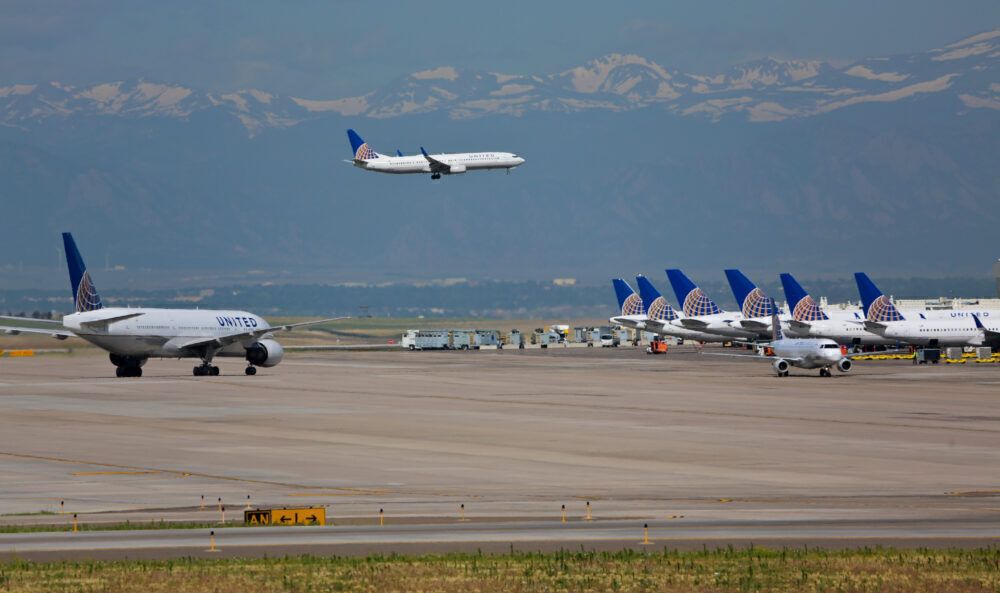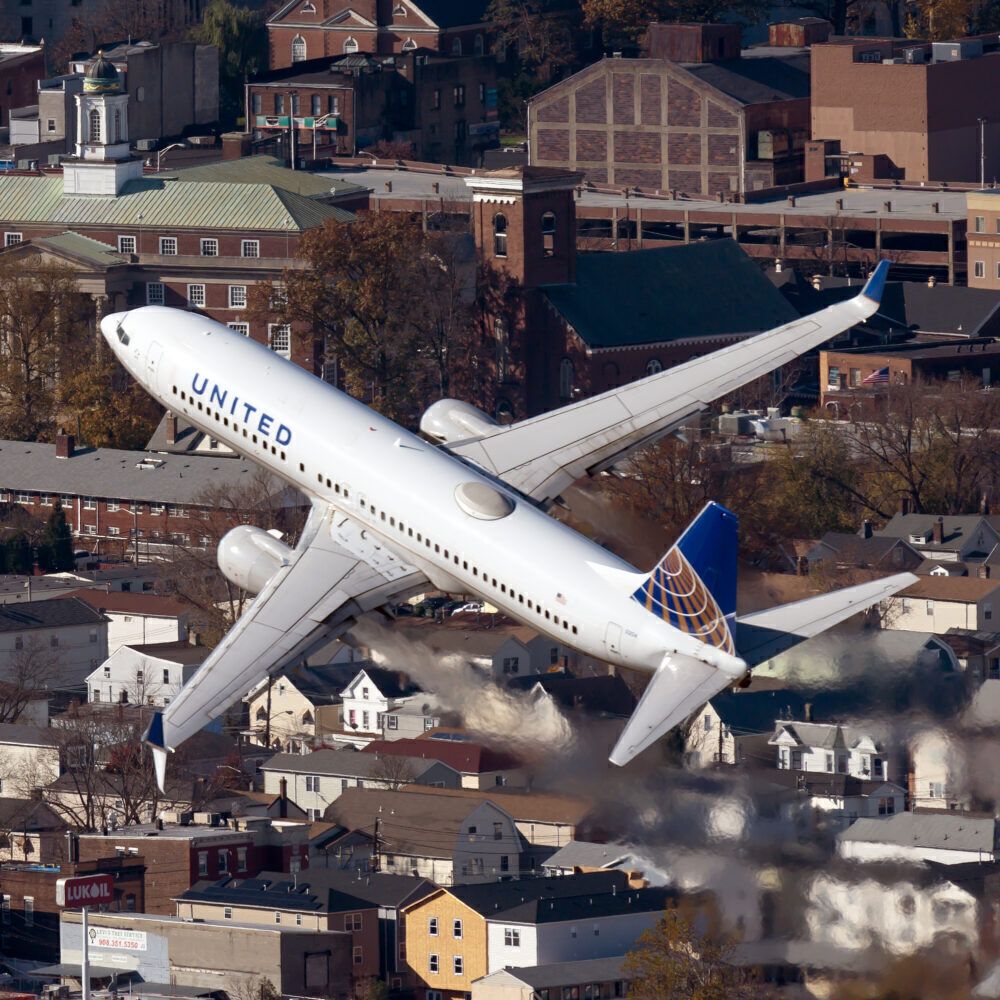Winter weather can be one of the most disruptive forces to an airline's schedule. A few weeks ago, Denver faced a massive winter storm that led to hundreds of flight delays and cancelations. However, while many United flights were affected, the airline avoided a massive operational meltdown. Here's what the airline's executives had to say about the feat.
United survived a winter storm in Denver
In mid-April, one of United's largest and most important hubs, Denver International Airport (DEN), faced a significant weather event. A massive winter storm pummeled the Denver area and threatened to wreak havoc on thousands of passengers departing, arriving, and connecting in Denver over a few days. Winter storms traditionally wreak havoc on airline schedules.
United's team discussed the actions it took on the carrier's recent first-quarter earnings call. The plans to survive the winter storm were drawn up days in advance of the storm actually hitting. Jon Roitman, Chief Operating Officer, stated the following:
"Several days before the storm – long before any other airline – we proactively reached out to more than 200,000 customers to inform them of the risks to their travel. We offered rebooking options and actually added 22 flights before the storm to provide more options for our customers – by far the largest such action we've ever taken."
Stay informed: Sign up for our daily and weekly aviation news digests.
The storm hits, and United is ready
Not all customers chose to alter their flights, but United was ready with a series of metrics. However, a decent number of them chose to alter their travel plans to avoid the disruption:
"Our forecast showed 45,000 passengers scheduled to fly through Denver each day during the storm. But through our new proactive strategy, we helped more than half of those customers reschedule their travel and avoid the risk of disruption to their plans.
“Our forward leaning approach was the right one for our Denver operation and, more importantly, the right one for our customers. We recovered our operations days before our competitors and received stellar feedback from our customers with NPS scores of those that we re-accommodated approximately 50% higher than our system average."
Net promoter scores (NPS) are an important metric for airlines. It is a widely-used measure of how likely customers are to recommend a company to someone else and helps provide a gauge of customer satisfaction. United has focused on improving its NPS, and one way it has done so is by targeting customer-friendly initiatives driven by data.
In addition to the proactivity United took ahead of the Denver storm, it also leveraged another program in place since 2019.
United's ConnectionSaver is working
In summer 2019, United launched its "ConnectionSaver" program. ConnectionSaver automatically informs customers and airline employees about flights that can be held for connecting customers without significantly delaying anyone's travel plans.
Mr. Roitman linked ConnectionSaver to the airline's focus on artificial intelligence and predictive analytics to minimize operational problems and keep the airline running smoothly. According to Mr. Roitman, the airline averaged over a whopping 2,000 saved connections per day during the recent winter storms.
ConnectionSaver departs from the traditional focus on D0, which is on-time departures, to ensure its customers get where they need to go. While United still wants to ensure its aircraft arrive on time or else with a very minimal delay, ConnectionSaver allows the carrier to delay some flights by a few minutes to ensure connecting passengers can make it onboard.
Ultimately, the travel experience on all airlines is moving to a more data-driven, predictive approach leveraging technology. United's ConnectionSaver and pre-planning helped it avoid an operational meltdown in Denver, which saved the airline from a potentially devastating scene of thousands of canceled flights and tens of thousands of stranded passengers in one airport.
Were your travel plans saved as a result of United's actions ahead of the Denver storm? Have you benefited from ConnectionSaver? Let us know in the comments!




